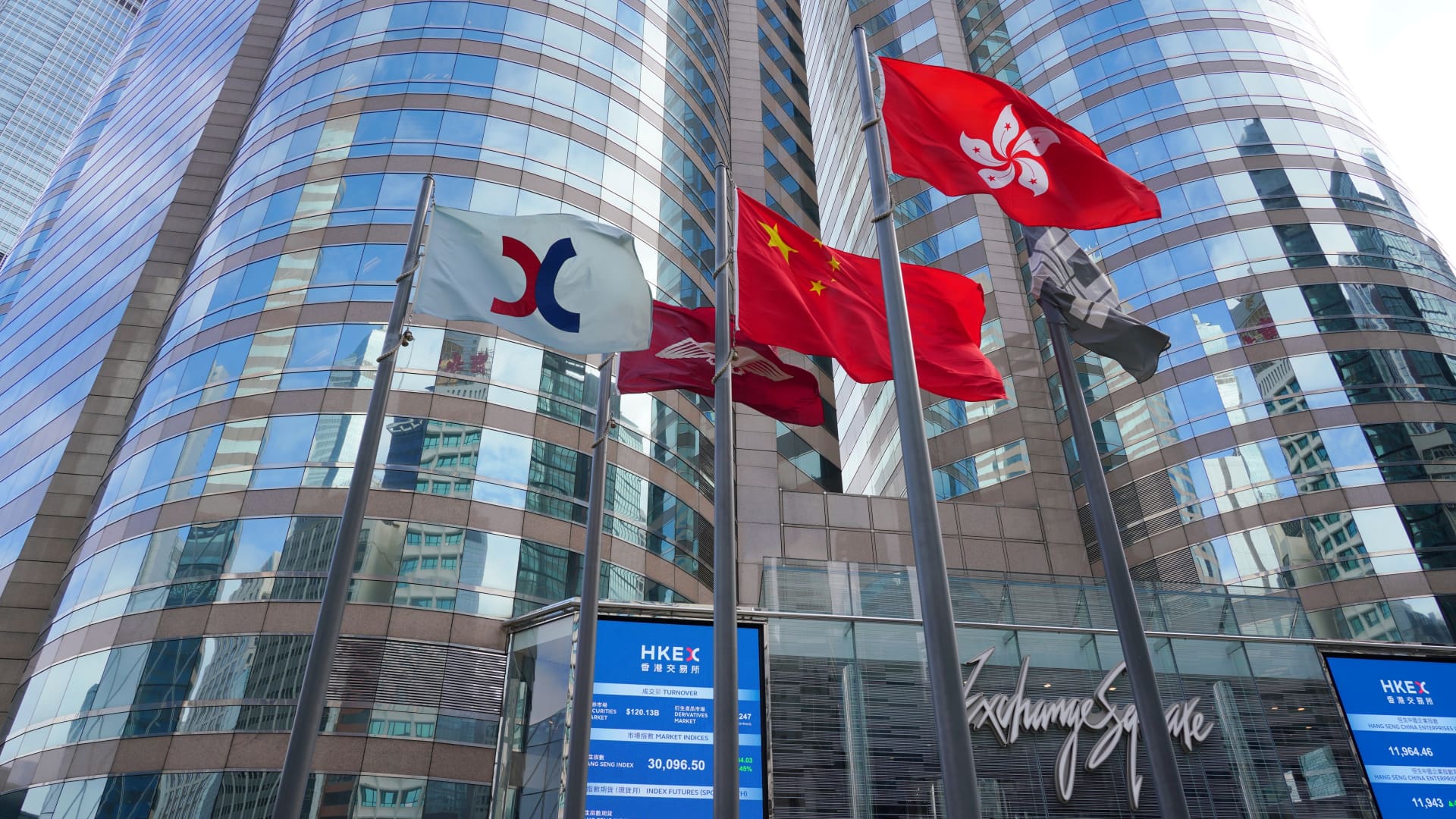Pierre-Luc Dubois on first season with Kings: ‘I’ll do anything
Asia-Pacific stocks mixed; New Zealand announces biggest rate hike in more than 20 years

SINGAPORE — Shares in Asia-Pacific were mixed in Wednesday morning trade as investors watched for market reaction to the release of a slightly hotter-than-expected U.S. inflation report. New Zealand also hiked its rate by 50 basis points, its biggest increase in more than 20 years.
Chinese stocks traded in negative territory ahead of the release of its trade data for March, as concerns around the mainland’s Covid situation continue to weigh on investor sentiment.
The Shanghai composite slipped 0.7% while the Shenzhen component traded 0.91% lower. Hong Kong’s Hang Seng index also declined 0.48%.
The Nikkei 225 in Japan climbed 1.25% while the Topix index advanced 0.68%.
US CPI inflation might have peaked this month, assuming there is no further escalation of the conflict in Ukraine and oil prices evolve in line with the future curve going forward.
Silvia Dall’Angelo
Senior Economist, Federated Hermes
South Korea’s Kospi rose 0.78% while the S&P/ASX 200 in Australia edged 0.24% higher.
MSCI’s broadest index of Asia-Pacific stocks outside Japan traded 0.22% higher.
RBNZ rate hike
The Reserve Bank of New Zealand on Wednesday announced its decision to raise the official cash rate by 50 basis points to 1.5%. The move represented the RBNZ’s fourth consecutive hike and its largest rate increase in more than 20 years, according to data from Factset.
“The Committee agreed it is appropriate to continue to tighten monetary conditions at pace to best maintain price stability and support maximum sustainable employment,” the central bank said in a release.
Following the decision, the New Zealand dollar strengthened to $0.6864, against an earlier low of $0.684.
U.S. inflation report
U.S. consumer prices rose 8.5% in March as compared with a year ago, the fastest annual gain since December 1981, according to official data released Tuesday. The consumer price index print was above the Dow Jones estimate for 8.4%.
The core consumer price index which excludes food and energy, however, showed signs it may be ebbing. It rose 0.3% for the month, lower than the 0.5% estimate.
The inflation report released Tuesday “validates expectations” for a 50 basis points rate hike by the U.S. Federal Reserve in May, Silvia Dall’Angelo, senior economist at Federated Hermes, wrote in a note.
“US CPI inflation might have peaked this month, assuming there is no further escalation of the conflict in Ukraine and oil prices evolve in line with the future curve going forward. However, there are still considerable external and domestic price pressures in the pipeline,” Dall’Angelo said.
Shares on Wall Street slipped overnight following the U.S. inflation report release. The Dow Jones Industrial Average shed 87.72 points, or 0.26%, to 34,220.36. The S&P 500 dipped 0.34% to 4,397.45 while the Nasdaq Composite declined 0.3% to 13,371.57.
Currencies and oil
The U.S. dollar index, which tracks the greenback against a basket of its peers, was at 100.3 as it continued to hold above the 100 level.
The Japanese yen traded at 125.59 per dollar, weaker than levels below 125.1 seen against the greenback earlier this week. The Australian dollar was at $0.7468 following its rise from below $0.744 yesterday.
Oil prices were higher in the morning of Asia trading hours, with international benchmark Brent crude futures rising fractionally to $104.70 per barrel. U.S. crude futures climbed 0.13% to $100.73 per barrel.
— CNBC’s Jeff Cox contributed to this report.
